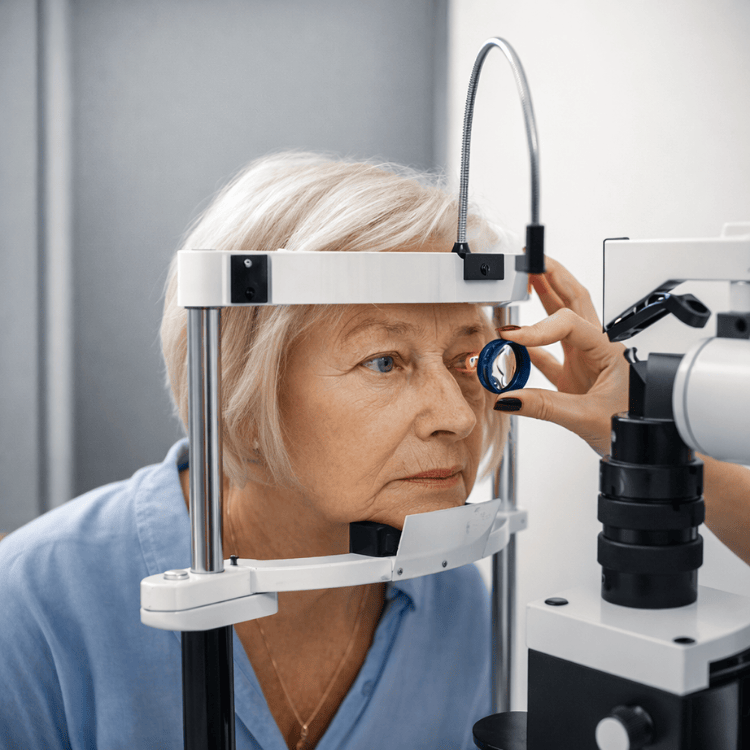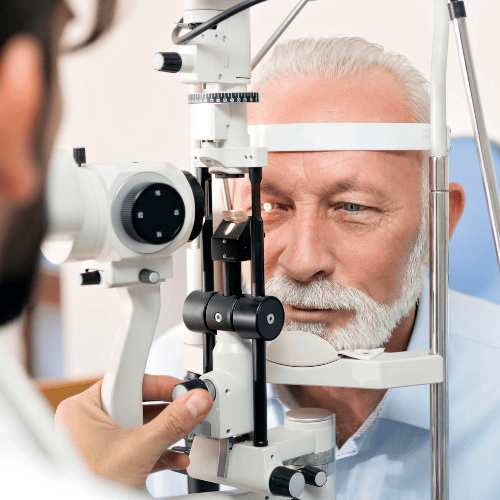THE CONNECTION BETWEEN MENTAL HEALTH AND VISION
As we navigate through the complexities of life, the interplay between our mental and physical health becomes increasingly evident. One area that often goes overlooked in discussions about anxiety, depression, and stress is their impact on vision and overall eye health. In this article, we explore the connections between mental health and vision, shedding light on how emotional well-being can influence our eyes.

The Mind-Eye Connection
Our bodies function as complex systems where mental health can significantly affect physical health, including our vision. High levels of stress, anxiety, and depression can lead to various visual disturbances and discomfort, which can, in turn, exacerbate mental health issues, creating a feedback loop that is hard to break.
Common Visual Issues Associated with Anxiety and Stress
1. Eye Strain and Fatigue
Individuals dealing with anxiety often report symptoms that include hypervigilance and restlessness, which can lead to prolonged periods of focusing.
Working on screens or engaging in tasks that require intense concentration can cause significant eye strain, resulting in discomfort and fatigue.
2. Dry Eyes
Stress can alter
tear production, making our eyes feel dry or gritty. This sensation not only affects comfort but can also impair vision. Those suffering from anxiety may find themselves unwittingly engaging in the "fight or flight" response, which typically results in reduced tear production.
3. Blurred Vision
Stress can lead to tension and tightness in the muscles around the eyes, resulting in temporary blurred vision. This symptom can exacerbate feelings of anxiety, creating a cycle that impacts daily activities and quality of life.
4. Increased Sensitivity to Light
People experiencing heightened levels of anxiety might find that they are more sensitive to light, a condition known as photophobia. Bright lights can become overwhelming, causing discomfort that detracts from their ability to focus on daily tasks.
Depression and Vision
Depression not only affects mood and emotional regulation, but it can also manifest physically. Research has shown that individuals with depression often report vision problems, including:
- Difficulty concentrating on visual tasks, leading to challenges in reading or recognizing faces.
- Changes in peripheral vision, which can make individuals feel disoriented or disconnected from their surroundings.
- Optic Neuritis: Although rare, depression has been associated with conditions like optic neuritis—an inflammation of the optic nerve that can affect vision.
The Importance of Eye Care
Addressing these issues requires a holistic approach. Here are some strategies to maintain both mental and eye health:
- Routine Eye Examinations: Regular check-ups with your MVO optometrist can help catch any visual issues early and ensure proper treatment.
- Stress Management Techniques: Practicing mindfulness, meditation, or yoga can reduce overall stress and alleviate some of the eye-related symptoms associated with anxiety and depression.
- Ergonomics in Daily Life: Adjusting workspaces to promote good posture and reducing screen glare can help prevent eye strain. Taking breaks using the 20-20-20 rule (looking at something 20 feet away for 20 seconds every 20 minutes) can also be beneficial.
- Seek Professional Help: Mental health support from therapy or counseling can provide tools and strategies to manage anxiety and depression, thus improving overall well-being, including eye health.
Conclusion
Mental health conditions like anxiety, depression, and stress have a profound impact on our physical health, including our vision. It is essential to recognize the signs and symptoms that may arise due to these conditions and to take proactive steps to address both mental and eye health. By fostering a comprehensive approach to wellness, we can ensure clearer vision and a healthier mind.
If you or someone you know is struggling with anxiety or depression, don't hesitate to seek support. Remember, your mental and visual health are interconnected; taking care of one often improves the other.











